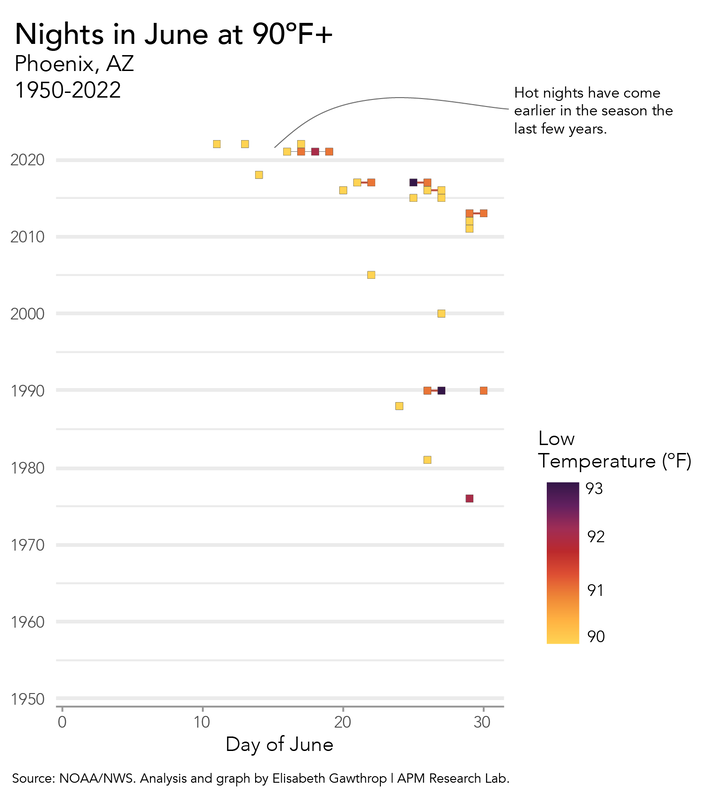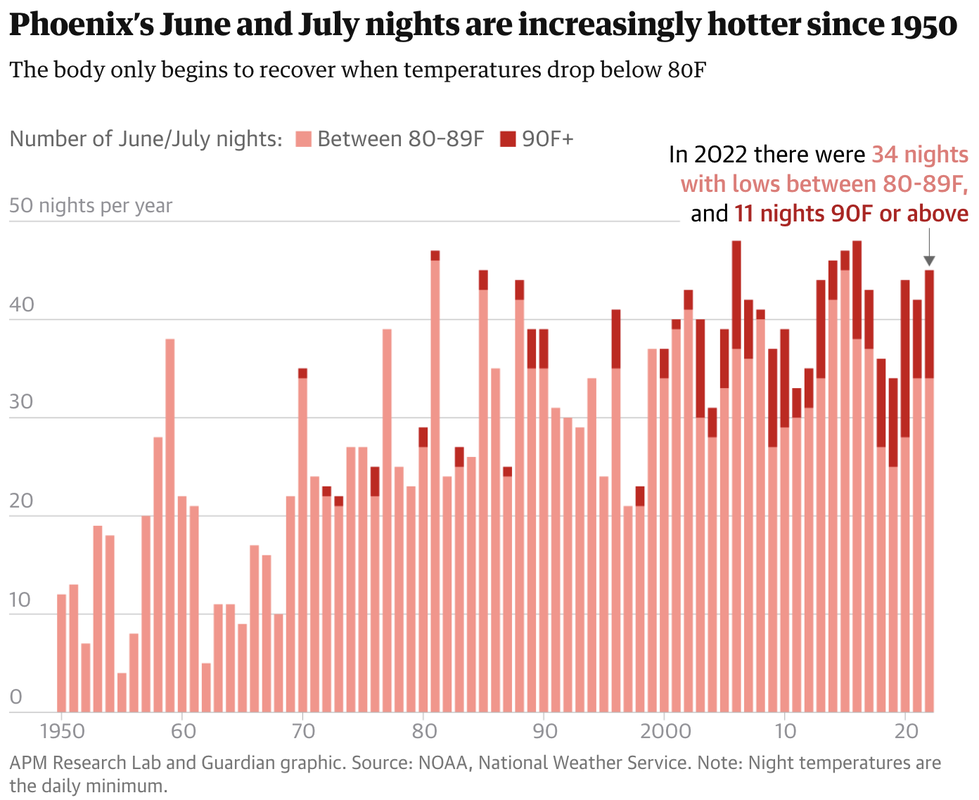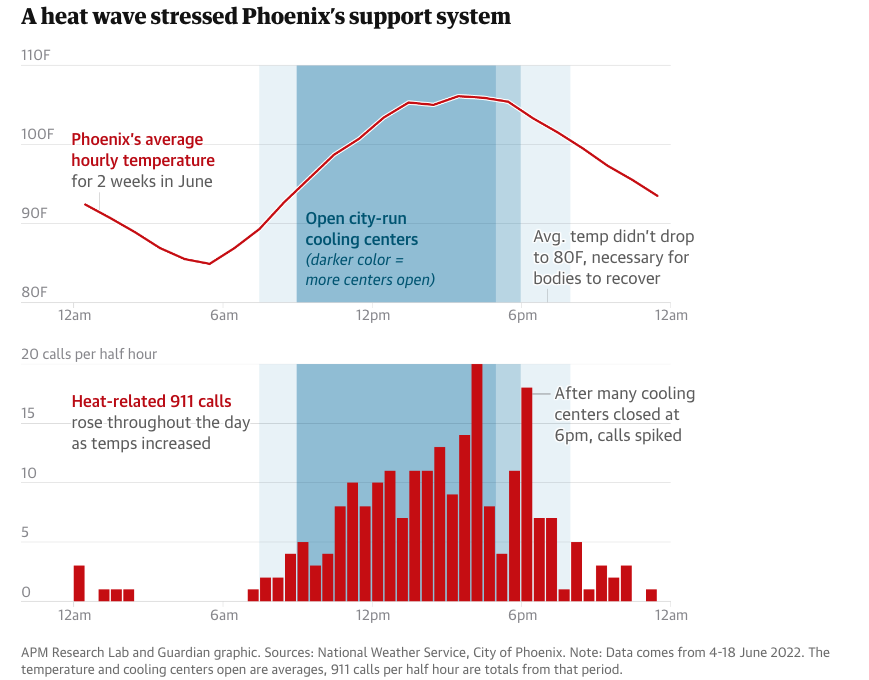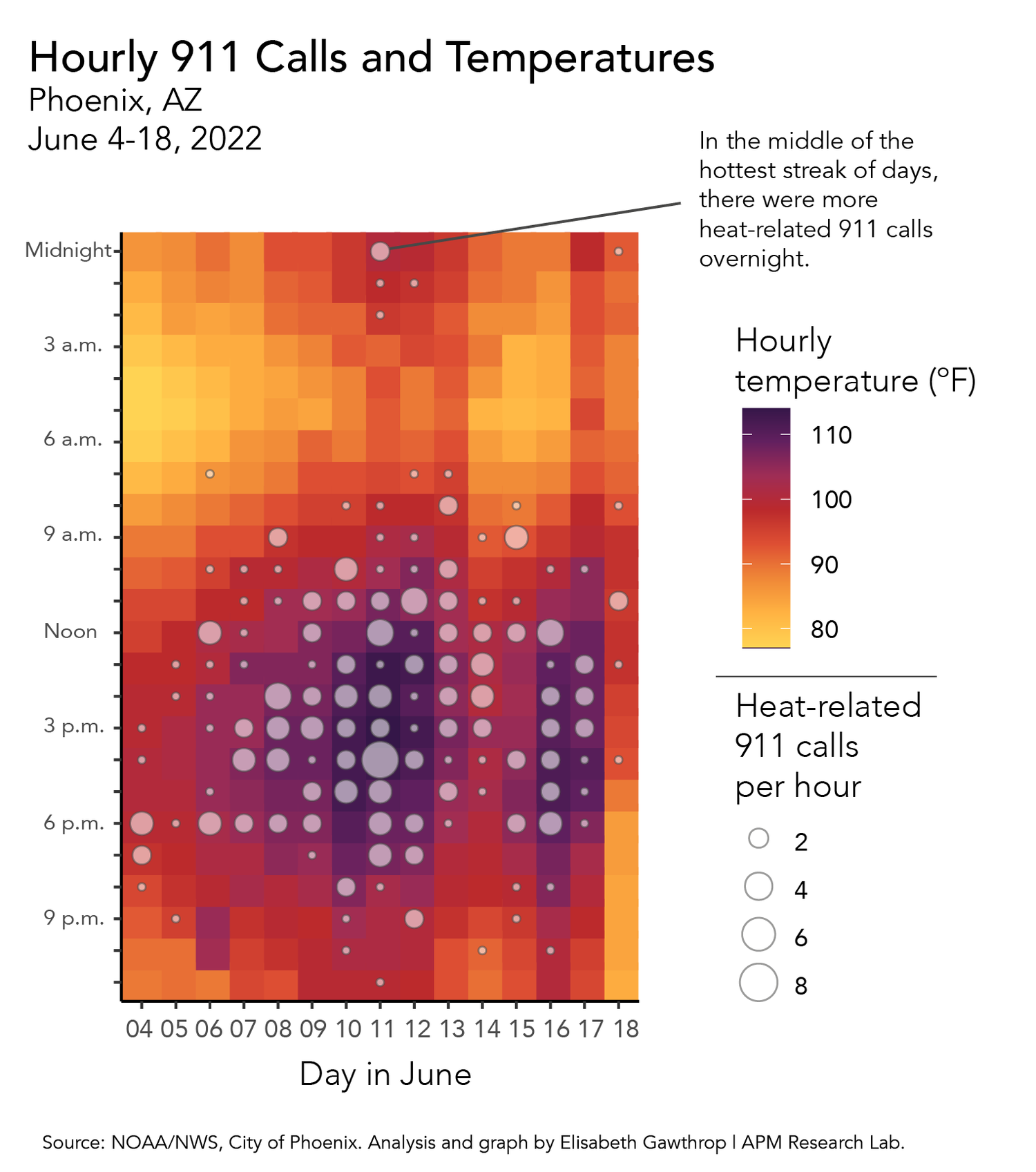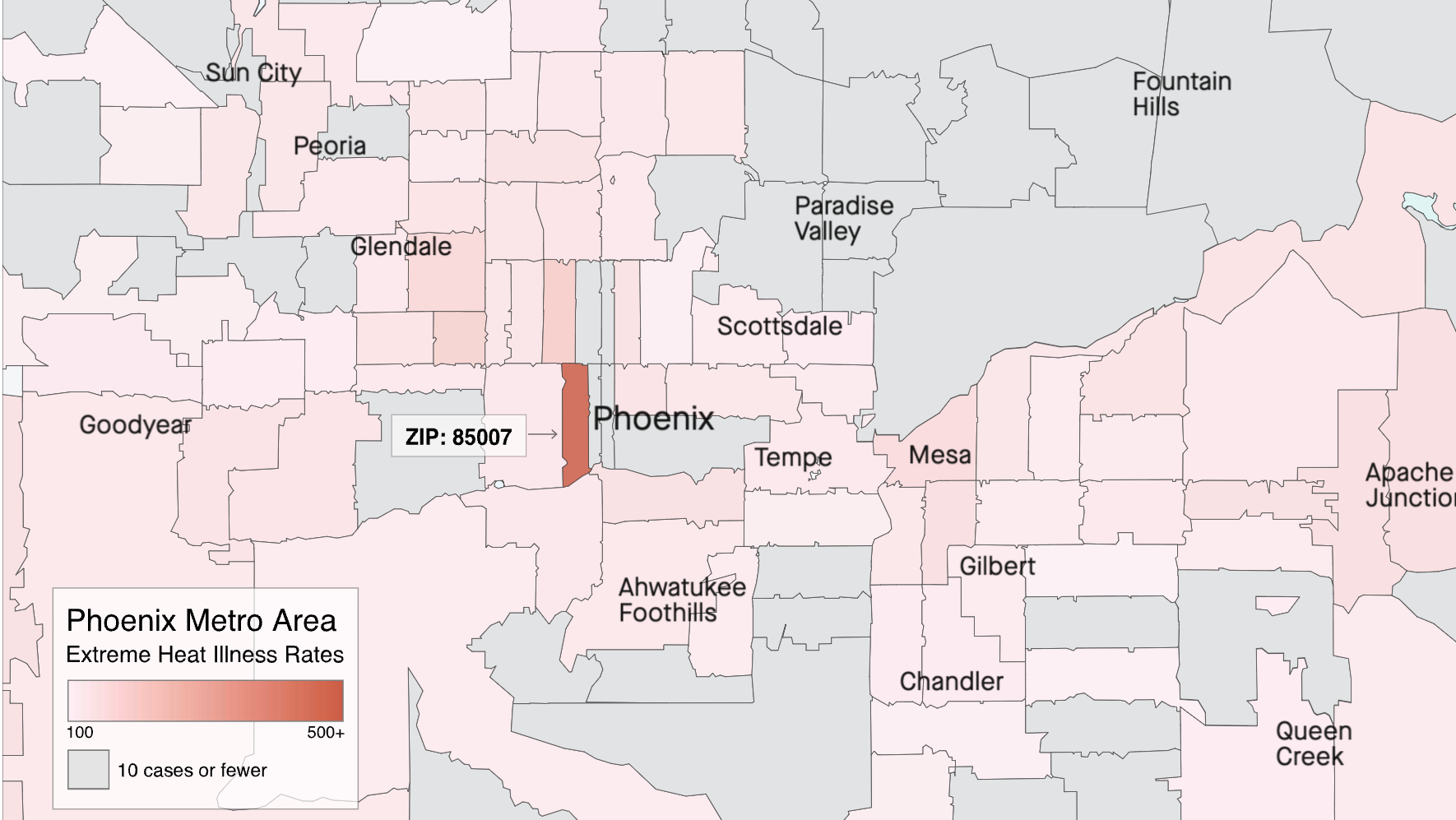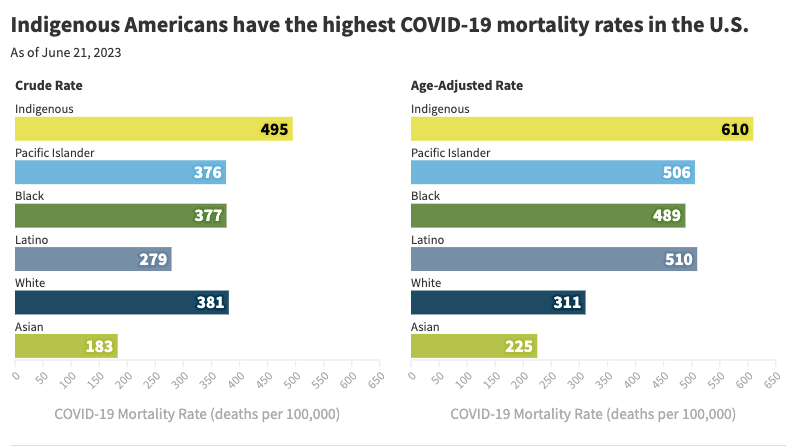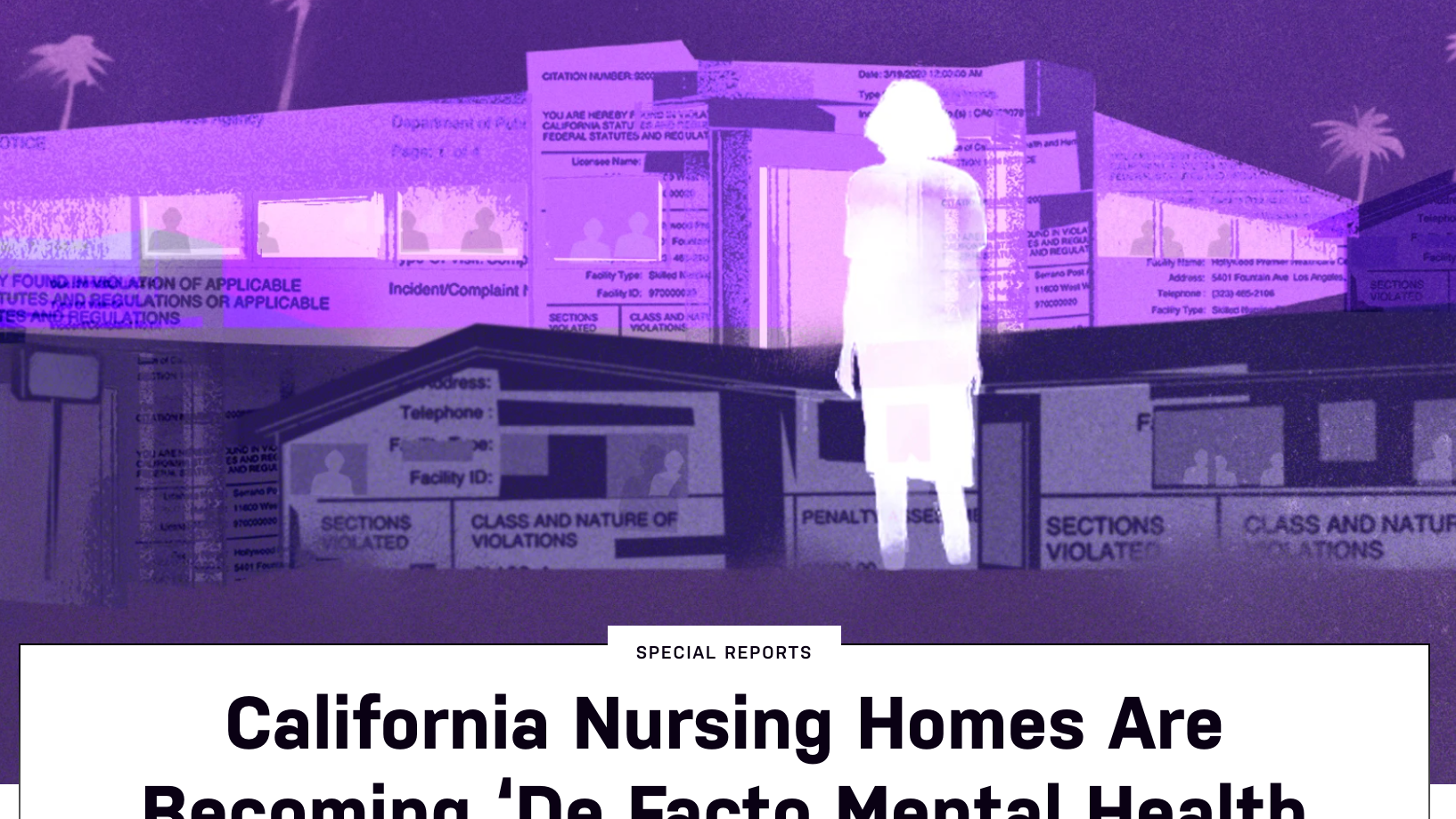Phoenix is getting hotter. Climate change is a contributing factor, and so is the urban heat island effect. Scientists have known for at least 20 years that the sprawl of concrete and lack of significant green infrastructure has been making the city hotter, especially at night, but unchecked development has continued.
First responders see the health impact of heat every day during the summer in Phoenix. In this collaboration between APM Research Lab and The Guardian, I look at the data on heat and 911 calls, and Nina Lakhani reports on what that looks like day-to-day after shadowing a fire station crew as they respond to heat-related illness calls. The Guardian story is here, with more data and visuals on the lab's site here.
First responders see the health impact of heat every day during the summer in Phoenix. In this collaboration between APM Research Lab and The Guardian, I look at the data on heat and 911 calls, and Nina Lakhani reports on what that looks like day-to-day after shadowing a fire station crew as they respond to heat-related illness calls. The Guardian story is here, with more data and visuals on the lab's site here.
